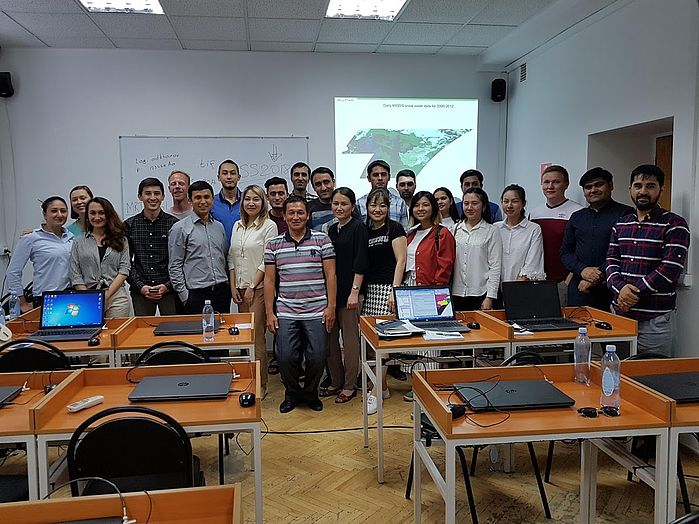The Summer School was organized in the frame of the German Water Initiative for Central Asia (“Berlin Process”), which has been launched by the German Federal Foreign Office in 2008 and is being implemented by DKU, the GIZ Transboundary Water Management in Central Asia Program and the CAWa project.
Overall 21 young master and PhD students as well as young specialists from government agencies and research institutions from five countries particiated in the two-weeks training.
The Summer School introduced scientific concepts, methods and tools for the analysis and monitoring of water and land resources in Central Asia. These methods are of great value in a framework of integrated water and land resources management. The 2-week Summer School combined theoretical lectures and practical exercises with discussion sessions on the implementation of new methods and tools in managing water and land resources in Central Asia. The programme included an introduction to geographical-informational systems (GIS), an overview of remote sensing applications for land and water resources monitoring and an introduction into statistical techniques for the analysis of hydro-meteorological data using the statistical computation environment R.
The courses were given by German and Central Asian researchers in English with support of Russian-speaking co-trainers.
21 young, motivated and dedicated master and PhD students as well as junior specialists of government agencies and researchers with interest in the application of geoscientific methods in the frame of IWRM participated in the summer school. Participants were selected based on the submitted application documents. The high number of 151 applications from all Central Asian countries indicates a rising interest in the CAWa capacity buiding measures. The CAWa project provided funding for travel and accommodation for the accepted participants.
